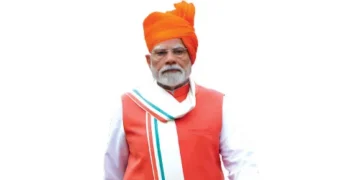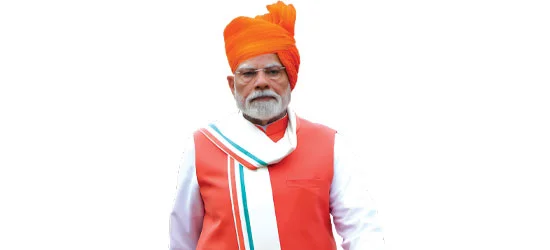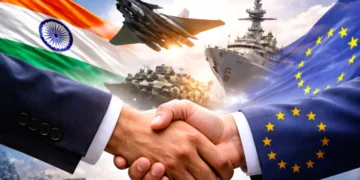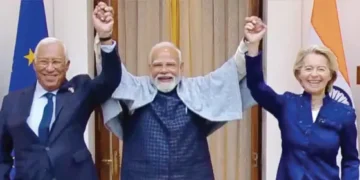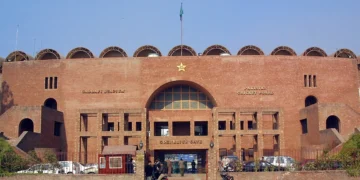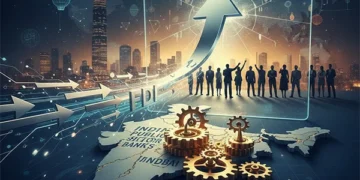Blitz Bureau
NEW DELHI: THIS is not the first time that Prime Minister Narendra Modi has pitched for atmanirbharta (self-reliance) as the answer to propel India’s growth. But his call at the ‘Samudra Se Samruddhi’ event in Gujarat acquired a sense of urgency in the backdrop of ongoing trade war launched against India by US President Donald Trump and his latest visa restrictions on Indians visiting the US for high-skill jobs. PM Modi said the main enemy of India was dependence on other nations. “From chips to ships, we must make everything. For peace, stability and wealth, the country with the highest population in the world has to become self-reliant,” the PM emphasised.
After targeting Indian exports with 50-pc tariffs, Trump has now chosen to strike at the heart of India’s global economic presenceits people. His latest executive order, imposing high cost on applicants for H-1B visa is not just a policy shift but a symbolic breach of the American policy that for decades powered its innovation engine by welcoming talent from every continent. The intent for self-reliance is unarguable.
A cursory look at India’s inherent strengths and its transactional relationships with the external world reveals both problems and potential opportunities. India is credited with a relatively high degree of macroeconomic and financial stability. Only a fifth of the country’s economic output is driven by external demand.
The right strategy for the country at this juncture would be to reinforce its core strengths with necessary reforms of factors of production, while seeking also to complement it with external links. The country has achieved a high level of food security, but 88 per cent of the crude oil processed in the country is imported. Import dependency for semiconductor and rare earth elements (REE) is as high as 90 per cent.
The recent tightening of export controls on REEs would not have threatened to retard the pace of India’s green energy projects and electric mobility plans, had its considerable rare earth reserves been ready for commercial exploitation. Fortunately, the Modi Government has taken pro-active measures in this direction to tap India’s REE potential and also entered into active collaborations with other countries to cut its dependence on China.
The Prime Minister’s promised restructuring of the Goods and Services Tax (GST) signals not just a consumption booster, but also an added impetus to economic output. Liberal and mutually beneficial trade alliances are being forged with developed countries.
India also should aim at having a much larger presence in the expansive IndoPacific markets, by being part of the Comprehensive and Progressive Agreement for Trans-Pacific Partnership that includes 12 countries and vouches for a rule-based trading system. Add to this a young workforce, lower costs, and a Government eager to back science and entrepreneurship, and the advantages are obvious.
On the international stage, a country can maintain enmity or friendship with other nations only to a limited extent. Constantly adopting such an approach ultimately results in setbacks. Relations between countries endure only when there is balanced friendship and mutual give-and-take. Unfortunately, Trump’s aggressive policies are destabilising the steady state of international relations. In his attempt to boost personal prestige, Trump is making decisions with double standards, leading to a shortage of ‘balance of power’ among leading nations. PM Modi’s call for self-reliance is timely in this context.
